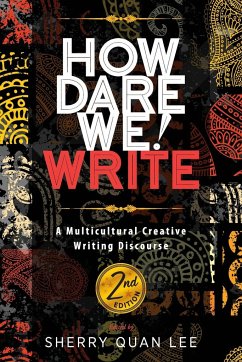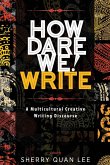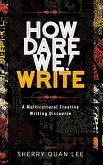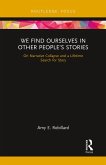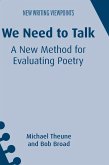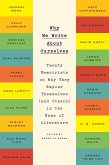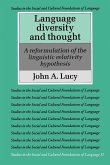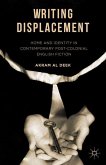How Dare We! Write: a multicultural creative writing discourse offers a much-needed corrective to the usual dry and uninspired creative writing pedagogy. The collection asks us to consider questions, such as "What does it mean to work through resistance from supposed mentors, to face rejection from publishers and classmates, and to stand against traditions that silence you?" and "How can writers and teachers even begin to make diversity matter in meaningful ways on the page, in the classroom, and on our bookshelves?" The expanded 2nd edition includes six new works, Creating Literary Spaces, that reach beyond the personal, beyond the present, into unknown spaces that make a difference. How Dare We! Write is an inspiring collection of intellectually rigorous lyric essays and innovative writing exercises; it opens up a path for inquiry, reflection, understanding, and creativity that is ultimately healing. The testimonies provide a hard-won context for their innovative paired writing experiments that are, by their very nature, generative. -- Cherise A. Pollard, PhD, Professor of English, West Chester University of Pennsylvania So-called "creative writing" classes are highly politicized spaces, but no one says so; to acknowledge this obvious fact would be to up-end the aesthetics, cultural politics (ideology) and economics on which most educational institutions are founded. How Dare We! Write, a brilliant interventive anthology of essays, breaks this silence. -- Maria Damon, Pratt Institute of Art; co-editor of Poetry and Cultural Studies: A Reader How Dare We! Write is a collection of brave voices calling out to writers of color everywhere: no matter how lonely, you are not alone; you are one in a sea of change, swimming against the currents. -- Kao Kalia Yang, author of The Latehomecomer: A Hmong Family Memoir, and The Song Poet, a 2017 Minnesota Book Award winner How Dare We! Write is a much-needed collection of essays from writers of color that reminds us that our stories need to be told, from addressing academic gatekeepers, embracing our identities, the effects of the oppressor's tongue on our psyche and to the personal narratives that help us understand who we are. ---Rodrigo Sanchez-Chavarria, writer, spoken word poet/performer and contributing author to A Good Time for the Truth: Race In Minnesota Learn more at http: //blog.SherryQuanLee.com From Modern History Press www.ModernHistoryPress.com
Hinweis: Dieser Artikel kann nur an eine deutsche Lieferadresse ausgeliefert werden.
Hinweis: Dieser Artikel kann nur an eine deutsche Lieferadresse ausgeliefert werden.

